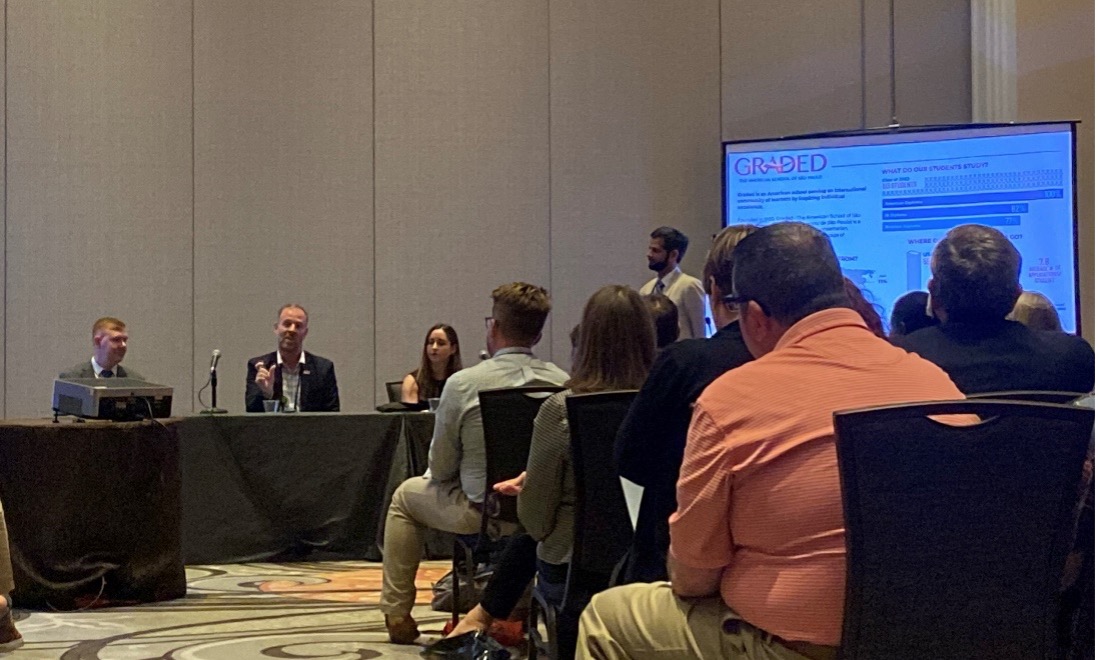College Board Forum 2022
2022 International Student Behaviors: Reading the Tea Leaves
Rushi Sheth, vice president of International at College Board, moderated a Forum session titled “International Student Behaviors: Reading the Tea Leaves.” He was joined by speakers Jeffrey Neill, director of college counseling at Graded – The American School of São Paulo; Michelle Trimpe, director of international admissions at The University of Chicago; and Des Cutchey, managing director at UCAS International.
The panel shared trends in international student mobility, influences of international students choices, and observations of international student behavior from both K–12 and higher ed perspectives.
Sheth shared recent results of College Board’s Annual International Students and Educators Survey. The 2022 survey revealed international students’ sustained interest in studying outside their home countries—with colleges in the U.S., U.K., and Canada remaining top destinations.
The panelists dug deeper into how their recruitment and outreach strategies have changed over the last few years, and which strategies are working best postpandemic.
Trimpe shared some additional feedback gathered by her teams: More international students expressed concerns about safety and cost of attending college in the U.S. Covid-19 changed her team’s recruiting strategies as they came up with more engaging tactics, such as virtual campus tours and essay writing workshops, which resulted in engaging students in more countries. She cited the hybrid recruiting model as a “definite win.”
Neill echoed hearing concerns about safety since 9/11, but more recently focused on the increase in gun violence in the U.S., as well as economic and social welfare issues. He also observed students’ attention span is much shorter. He recommended Higher Ed’s international recruiting team focus on three P’s: place, program, and product. Students are adding more countries to their application portfolios and paying more attention to majors and career opportunities after college. Other than school counselors, top influencers include parents, independent consultants, and peers. In fact, peer influencing is getting stronger, and students are paying more attention to the opinions of their high school alumni who attend colleges they’re interested in.
Trimpe has recommended her team engage in short pitches, as opposed to 45-minute-long info sessions, to better engage students. Her team also implemented an international ambassador program for alumni to speak to international high school students in person or virtually. Cutchey suggested finding a balance to reflect the authenticity of the ambassador program in sharing real reviews of the college experience—both good and bad.
The panel concluded by predicting top study abroad destinations in 2030: U.S., U.K., and Canada remain strong. Netherlands is gaining popularity while College Board saw Germany as one of the top five SAT score-sending destinations.
